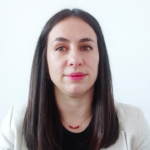This course is also available in Russian language.
ODIHR’s Human Rights Monitoring Training is designed to teach you the basics of how to uncover human rights violations, advocate for justice and make a positive impact in your environment in a structured, accurate and reliable manner. You will learn about the human rights legal framework, the international bodies that monitor human rights and will discover how to conduct a proper human rights investigation.
Plan, gather facts, cross-check your information, interview victims, structure your investigation and act to seek justice and engender change!
What will I learn?
Human Rights Monitoring training will equip you with necessary knowledge and valuable set of skills guiding you in the process of recording and analysing information, presenting findings of monitoring activities, expressing concerns about a human rights issue, engaging in dialogue with duty bearers, advocating for positive change and proposing recommendations for corrective action.
Learning Objectives
- To strengthen the capacity of CSOs, human rights defenders (HRDs), activists and human rights organizations to monitor, investigate and document human rights violations;
- To enhance understanding of the skills and knowledge necessary for stimulating human rights change;
- To help learners navigate the process of monitoring, documenting and advocating on human rights violations using simple steps and practical tools;
- To enable HRDs to recognise applicable international legal framework and international monitoring standards;
- To provide learners with possibility to examine the nature and extent of states’ obligations under international and national human rights standards;
- To equip CSOs, HRDs and activists with necessary skills needed to apply strategic planning in human rights monitoring to reach a greater impact;
- To enable learners to review possible engagement and partnership strategies with State and non-State actors;
- To help HRDs address the human rights situation through corrective action, advocacy and intervention or international human rights mechanisms.
Meet the Trainers
David Mark
David was a Human Rights Adviser at the Office for Democratic Institutions and Human Rights of the OSCE. He is a professional with more than 14 years of experience in human rights monitoring, capacity building, advocacy and policy-making.
At ODIHR David Mark led innovative technology solutions that support human rights defenders and works to leverage tech for human rights education. He has extensive experience working with governments, human rights activists and organizations including in areas affected by conflict, in post conflict and/or emergency situations.
Yelena Volochai
Yelena Volochai is a consultant to various monitoring and advocacy projects. She has extensive experience in evaluation of monitoring and advocacy projects for the Batory Foundation, the Nordic Council of Ministers (NCM) and ODIHR OSCE.
Yelena has expertise in teaching advocacy for lawyers within the framework of the cooperation with the Human Rights House Foundation, as well as for public organizations and journalists from Ukraine, Belarus, Armenia and Tajikistan.
Since 1995, Yelena has been providing expert evaluations for courts of different countries for cases of compensation of non-pecuniary damage for victims of human rights violations. In addition, Yelena Volochai conducts trainings and webinars for legal representatives including judges, lawyers, police officers, employees of ministries and departments in the regions of Central Asia, Caucasus and Eastern Europe (projects ABA/ROLI, UNDP, OSCE project office in Tajikistan).
Marina Barreiro Marinno
Marina Barreiro Marinno has worked for several interational organizations such as UN Women, UNDP, the OSCE High Commissioner on National minorities and UNHCR Mexico on projects to advance their human rights and gender mainstreaming programmes. She is the author of several reports on human rights, with a special focus on LGBTI, women ́s rights, migrant ́s rights, fundamental freedoms, especially freedom of assembly and media and anti-discrimination. In previous years, Marina worked as a Political Officer at the Embassy of Spain to Bosnia and Herzegovina (BiH) and as a Programme Manager at Sarajevo Open Centre, focusing mainly on advancing LGBTI human rights and women’s rights. In 2014 she joined the Organization of Security and Cooperation for Europe, where she was the Head of the Human Rights Section, coordinating the work of the International Organization on that area throughout BiH. Marina holds a MSc. in Political Sciences by the University of Santiago de Compostela and an MA in International Relations and Diplomacy by the Diplomatic School of the Ministry of Foreign Affairs of the Kingdom of Spain.
Modalities
How do I enroll?
The course is available for free and for all.
You may access it anytime with or without registration. Registering will help you save your progress: stop at any stage and resume whenever you feel like it.

How do I get a certificate?
The module quizzes are compulsory but won’t affect your final grade. These quizzes can be retaken and we encourage you to go back and refer to these materials as and when you need them.
At the end of the course – subject to completing all of the module quizzes – there is a final assessment that, if passed, will provide you with a certificate for completing the course.
Language and Subtitles
The language of instruction in the videos is English. Subtitles are available in English and Russian. To turn the subtitles on, click on the settings in the lower-right corner of a video and choose a language.
If you’re having trouble exiting out of the log-in/registration panel, kindly zoom out to access the exit button
Certificate Requirements
Complete the final assessment with a final grade of 75% or higher.







